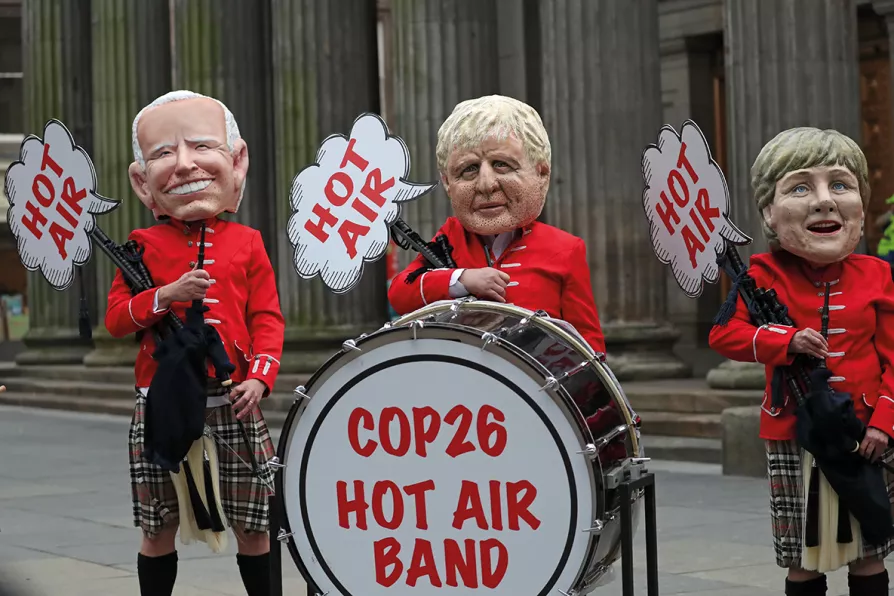From Chartists and Suffragettes to Irish republicans and today’s Palestine activists, the treatment of hunger strikers exposes a consistent pattern in how the British state represses those it deems political prisoners, says KEITH FLETT


ON SATURDAY October 30 2021, just days before the historic Cop26 climate summit in Glasgow, the leaders of the G20 (the 20 largest industrialised countries) gathered in Rome. Expectations were high, but they failed to send a strong signal in the run-up to the climate conference.
The pressure to reach firm agreements was great. There were calls from, among others, UN secretary-general Antonio Guterres and Pope Francis.
Italian Prime Minister Mario Draghi, host of the summit, also sounded a warning as the the event began: “As glaciers melt, sea levels rise and extreme weather events become more frequent, we are faced with a simple choice. We can act now or regret it later.”
No concrete agreements
On the positive side, G20 leaders pledged to limit global warming to 1.5°C. “We recognise that the impacts of climate change at 1.5°C are much lower than at 2°C. Keeping 1.5°C within reach will require meaningful and effective actions and commitment by all countries,” says the summit’s final declaration.
On the other hand, G20 leaders failed to set a precise target date for achieving key objectives such as carbon neutrality or shutting down coal plants. The final communique only says that this will happen “in the medium term.” There is also no concrete planning or precise figures for reducing methane emissions.
The disappointment is great
Guterres was far from delighted with the outcome. “While I welcome the G20’s recommitment to global solutions, I leave Rome with my hopes unfulfilled — but at least they are not buried.”
Climate activists echo that concern. They are calling for more strong commitments to combat global warming.
According to the citizens’ movement Global Citizen, a group that champions sustainable development, “the G20 had a particular responsibility coming to Rome. The result is not enough. They’re the countries polluting the most, so we expected them to go beyond the Paris Agreement to get us on track. Unfortunately, we didn’t see this.”
Friederike Roder, vice-president of Global Citizen, said: “We’re running out of time. Now individual G20 members need to step up. In the end, declarations won’t change the world but action.”
Urgent appeal from Greenpeace
Jennifer Morgan, executive director of Greenpeace International, was very sharp. “If the G20 was a dress rehearsal for Cop26, then world leaders fluffed their lines. Their communique was weak, lacking both ambition and vision, and simply failed to meet the moment.”
“Governments must respond to the deadly warnings the planet is giving us and cut emissions drastically right now, to stay in line with 1.5°C, and that requires stopping any new fossil fuel development and phasing them out.”
“At Cop26, we will not let up and continue to push for more climate ambition, as well as the rules and actions to back it up. We need to stop all new fossil fuel projects immediately.”
“We are calling for true solidarity to support poorer countries to survive and adapt to the climate emergency. Every moment spent where wealthy governments focus on corporations’ bottom lines, rather than enacting solutions, costs people’s lives.”
Originally published in Dutch at www.dewereldmorgen.be.

As fossil fuels have had their day, JOSIE MIZEN makes it clear that it is now the government’s responsibility to initiate the transition to alternative employment in a manner that is organised, efficient and effective

Reaching co-operation is supposed to be the beginning, not the end, of global climate governance, argues LISA VANHALA












